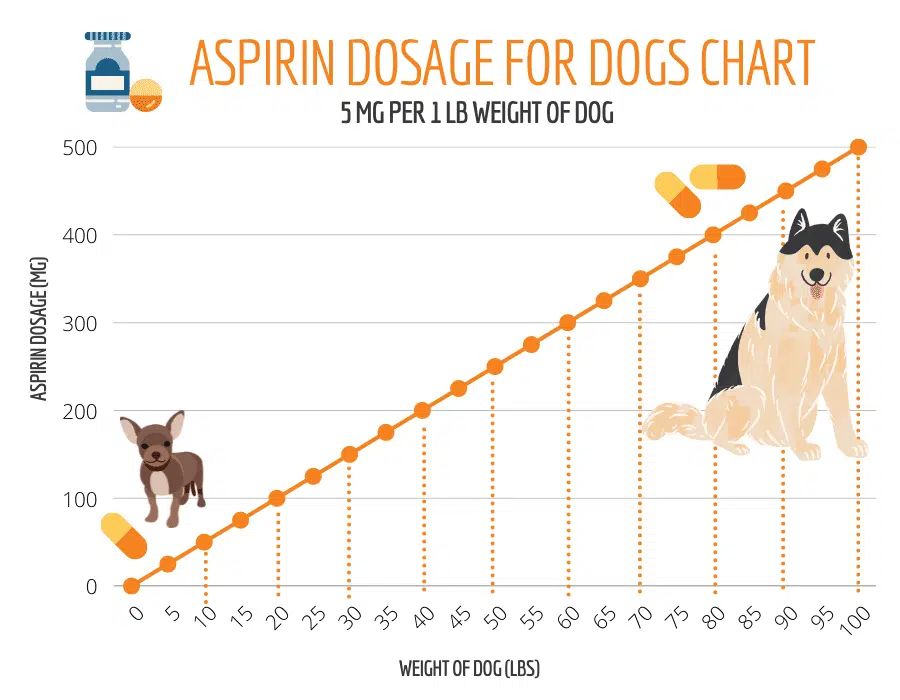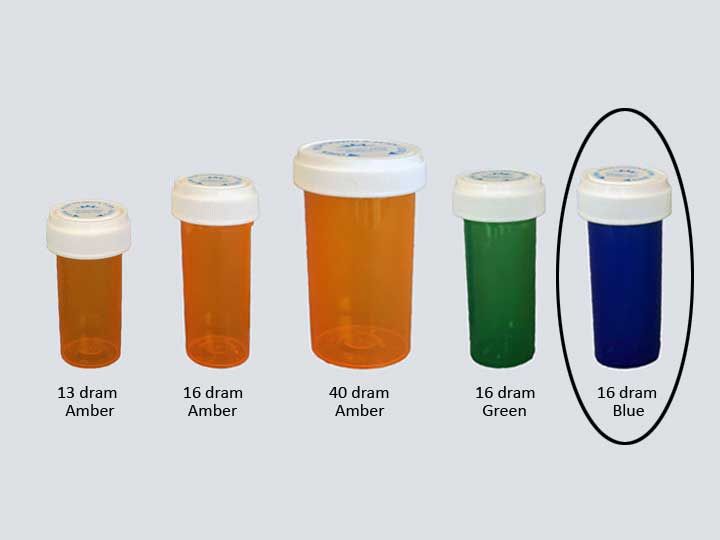Introduction
Aspirin is a common medication used to treat pain, fever, and inflammation in both humans and dogs. Baby aspirin, or low-dose aspirin, contains a smaller dosage than regular adult aspirin and can be safely administered to dogs when recommended by a veterinarian. This article provides an overview of using baby aspirin for dogs, including proper dosing based on weight, administration, monitoring, and potential side effects. The goal is to inform dog owners about the uses of baby aspirin for dogs and provide guidelines on safe dosage and administration.
Is Baby Aspirin Safe for Dogs?
Aspirin can potentially provide some benefits for dogs when used correctly under veterinary guidance. According to the AKC, aspirin has anti-inflammatory, anti-coagulant, anti-pyretic, and analgesic effects that may help relieve pain, fever, and inflammation in dogs [1]. However, aspirin also carries risks of side effects and toxicity if improperly dosed, so should only be given to dogs under direct veterinary supervision.
Some potential side effects of aspirin in dogs include [2]:
- Gastrointestinal ulcers or bleeding
- Liver damage
- Kidney damage
- Blood clotting disorders
- Allergic reactions
Enteric coated aspirin meant for human use can also increase these risks for dogs. Canine formulations or buffered aspirin is typically recommended instead. Overall, owners should only give aspirin to dogs under the guidance of a veterinarian, with careful dosage monitoring and awareness of potential medication interactions.
Recommended Dosages
The recommended dosage of baby aspirin for dogs is 0.5 to 1 mg per pound of body weight given every 12 hours or as directed by your veterinarian (https://towncountryvetftdodgeia.com/faqs/what-is-the-dose-for-aspirin-in-a-dog/). This equates to approximately 1 regular strength (325 mg) or low dose (81 mg) baby aspirin per 10 to 20 pounds of body weight every 12 hours.

The dosage may need to be adjusted based on factors such as the size and health status of your dog. Small dogs and puppies will need lower dosages based on their weight, while larger dogs may be able to tolerate slightly higher dosages.
Your veterinarian may prescribe a higher or lower dosage depending on if your dog has any medical conditions. Dogs with liver or kidney disease may need a reduced dosage. The frequency of dosing may also be adjusted to every 8 or 24 hours based on your dog’s specific needs.
Dosing by Weight
The dosage of baby aspirin for a 10lb dog is typically 50-100 mg per dose. This is equivalent to approximately 1/4 to 1/2 of a standard baby aspirin tablet (1 baby aspirin tablet = 81 mg).
According to Aspirin For Dogs: Uses, Dosages, And Side Effects, the recommended dosage guidelines based on weight are:
- 0 – 5 pounds: 25 – 50 mg
- 5 – 10 pounds: 50 – 100 mg
- 10 – 20 pounds: 100 – 200 mg
- 20 – 40 pounds: 200 – 400 mg
- 40 – 60 pounds: 400 – 600 mg
So for a 10lb dog, start with a dose on the lower end of the range, around 50 mg. Monitor your dog’s response and adjust the dose as needed under veterinary supervision.

Do not exceed 2 baby aspirin tablets per dose, even for larger dogs. And always consult your veterinarian before giving any medication, including aspirin, to your dog.
Administration
When giving a dog baby aspirin, it’s important to follow some tips and precautions:
The easiest way to administer baby aspirin is to disguise it in the dog’s food. Crush up the aspirin tablet and mix it into wet dog food, peanut butter, or another tasty treat that your dog loves. Make sure your dog eats all of the doctored food so that they get the full dosage.
You can also place the pill or fragments in the back of the dog’s mouth and encourage them to swallow. However, some dogs will spit out pills, so mixing with food is often more successful.
It’s best to give aspirin with food, as this helps minimize potential stomach upset. Avoid giving on an empty stomach.
Never try to force a dog to swallow a pill. This could prompt choking. Go slowly and be patient.
Avoid getting aspirin on your hands when dosing your dog. Wash hands before and after administration. You don’t want to accidentally ingest any medication meant for your dog.
Do not give more than the recommended dosage for your dog’s weight. Overdosing on aspirin can lead to serious health issues. Stick to the proper baby aspirin dosage for dogs.
If your dog vomits after receiving a dose, do not give them another dose to try to make up for it. Call your vet for advice.
Always follow your veterinarian’s specific dosing instructions. Baby aspirin dosages can vary depending on your dog’s health status.
Check with your vet before giving any other medications along with aspirin, as drug interactions are possible.
Monitoring Your Dog
It’s important to monitor your dog closely after giving them baby aspirin to watch for potential side effects or adverse reactions. Some key things to look out for include:
Vomiting or diarrhea – Aspirin can cause stomach upset, so look out for any vomiting or loose stools. If the vomiting is severe, bloody, or continues more than 24 hours, call your vet.
Lack of appetite – Aspirin may cause a decrease in appetite. If your dog refuses food for more than a day, let your vet know.
Blood in stool or dark/tarry stools – This can be a sign of gastrointestinal bleeding and requires urgent vet attention.
Increased thirst and urination – Aspirin can cause kidney problems leading to increased thirst and urination. Notify your vet if you notice this.
Breathing issues – Rapid breathing, coughing, or blue tinged gums could indicate aspirin toxicity. Seek vet care immediately.
Lethargy, weakness, or lack of coordination – These may be signs of toxicity requiring prompt vet care.
Bruising or bleeding – Aspirin thins the blood so look for abnormal bruising or bleeding from the nose or gums.
If you notice any of these signs after giving your dog baby aspirin, call your vet right away. It’s also a good idea to monitor for adverse effects for at least 48 hours after giving a dose.
Other Medication Interactions
When giving a dog aspirin, it is important to be aware of potential medication interactions. Some drugs should not be combined with aspirin due to increased risk of side effects.
According to VCA Animal Hospitals, the following medications should be used with caution and are sometimes contraindicated when given with aspirin:
- ACE inhibitors – used for treating heart failure
- Alendronate – used for osteoporosis
- Aminoglycosides – antibiotic drugs
- Angiotensin receptor blockers – treat high blood pressure
- Corticosteroids – control inflammation
- Diuretics – rid body of excess fluid
- Methotrexate – treats cancer, arthritis
- Nonsteroidal anti-inflammatory drugs (NSAIDs) – reduce pain/inflammation

Combining aspirin with any of these drugs can increase the risk of kidney problems, stomach ulcers, and bleeding disorders. It’s extremely important to consult your vet before giving a dog aspirin, especially if they are already on other medications.
Homemade Aspirin Dangers
You should never give your dog homemade or modified aspirin. Homemade aspirin has the potential to be very dangerous, even life-threatening for dogs. This is because the chemical makeup is inconsistent and unknown.
According to experts at WebMD, “The toxic dose [for dogs] is much lower than [it is for humans]. So if you’re giving aspirin at too high a dose, it can lead to vomiting, gastrointestinal ulcers, and even liver disease in your dog.” Making homemade aspirin significantly increases the risk of toxicity as the dosage is unregulated.
Some of the toxic effects of homemade aspirin include vomiting, diarrhea, bleeding disorders, liver damage, ulcers, seizures, coma and even death. The risk comes from not knowing the exact chemical makeup and proper dose.
It’s simply not worth the risks. Only give your dog aspirin formulated and dosed specifically for canine use, under the guidance of your veterinarian.
When to Consult a Vet
It’s recommended to consult your veterinarian before giving any medication, including aspirin, to your dog. A vet should examine your dog and make dosage recommendations based on health history and current condition. Some situations when a vet consultation is especially crucial include:

- Your dog has pre-existing health conditions like kidney disease, diabetes, or gastrointestinal ulcers. Aspirin can worsen these conditions.
- Your dog needs aspirin for more than a few days for pain relief. Long-term aspirin use requires veterinary monitoring to avoid complications.
- Your dog has signs of internal bleeding or bruising, which can be a side effect of too much aspirin.
- Your dog is already taking other NSAID pain relievers or steroids, which may interact with aspirin.
- Your dog weighs under 10 pounds. Small dogs require very precise aspirin dosing based on weight.
Veterinary guidance is important when giving any medication to your pet. Aspirin dosage for dogs should always be tailored to your individual pet’s needs. Contact your vet promptly if you have any concerns about your dog’s reaction to aspirin.
Key Takeaways
Before giving your dog any medication, including baby aspirin, it’s important to consult your veterinarian. While baby aspirin can provide pain relief and reduce inflammation in dogs, it needs to be given in the proper dosage for your dog’s weight.
For a 10 pound dog, the typical dosage of baby aspirin (81 mg tablets) is 1/4 of an 81 mg tablet, given 1-2 times daily. This provides approximately 20-40 mg per dose. Baby aspirin should be given with food and monitored carefully for any side effects. Never exceed the recommended dosage based on your dog’s weight.
Signs of overdose can include vomiting, stomach ulcers, and internal bleeding. It’s also vital to tell your vet about any other medications your dog is taking to avoid interactions. Baby aspirin can be beneficial for dogs in certain circumstances, but always get guidance from your vet first.